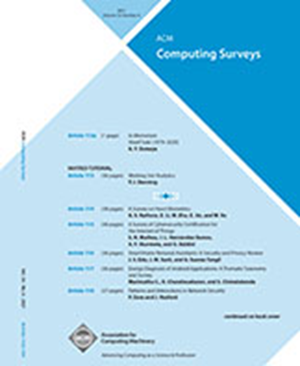因果推理和机器学习中的工具变量:综述
IF 28
1区 计算机科学
Q1 COMPUTER SCIENCE, THEORY & METHODS
引用次数: 0
摘要
因果推理是使用假设、研究设计和估计策略的组合来得出变量之间因果关系的结论的过程。在机器学习中,因果推理对于揭示复杂系统背后的机制和做出明智的决策至关重要。本文全面概述了在因果推理和机器学习中使用工具变量(IVs),重点是解决影响治疗和结果变量的未观察到的混淆。我们回顾了IV文献中标准假设下的鉴定条件。在本文中,我们探讨了IV方法的三个关键研究领域:两阶段最小二乘(2SLS)回归、控制函数(CFN)方法以及IV学习方法的最新进展。这些方法涵盖了经典的因果推理方法和机器学习研究的最新进展。此外,我们还提供了实现这些方法的可用数据集和算法的摘要。此外,我们还介绍了IV方法在现实场景中的各种应用。最后,我们指出了有待解决的问题,并提出了未来的研究方向,以进一步推进该领域。通过机器学习(MLIV)回顾IV方法的工具包可在https://github.com/causal-machine-learning-lab/mliv上获得。本文章由计算机程序翻译,如有差异,请以英文原文为准。
Instrumental Variables in Causal Inference and Machine Learning: A Survey
Causal inference is the process of drawing conclusions about causal relationships between variables using a combination of assumptions, study designs, and estimation strategies. In machine learning, causal inference is crucial for uncovering the mechanisms behind complex systems and making informed decisions. This paper provides a comprehensive overview of using Instrumental Variables (IVs) in causal inference and machine learning, with a focus on addressing unobserved confounding that affects both treatment and outcome variables. We review identification conditions under standard assumptions in the IV literature. In this paper, we explore three key research areas of IV methods: Two-Stage Least Squares (2SLS) regression, control function (CFN) approaches, and recent advances in IV learning methods. These methods cover both classical causal inference approaches and recent advancements in machine learning research. Additionally, we provide a summary of available datasets and algorithms for implementing these methods. Furthermore, we introduce a variety of applications of IV methods in real-world scenarios. Lastly, we identify open problems and suggest future research directions to further advance the field. A toolkit of reviewed IV methods with machine learning (MLIV) is available at https://github.com/causal-machine-learning-lab/mliv.
求助全文
通过发布文献求助,成功后即可免费获取论文全文。
去求助
来源期刊

ACM Computing Surveys
工程技术-计算机:理论方法
CiteScore
33.20
自引率
0.60%
发文量
372
审稿时长
12 months
期刊介绍:
ACM Computing Surveys is an academic journal that focuses on publishing surveys and tutorials on various areas of computing research and practice. The journal aims to provide comprehensive and easily understandable articles that guide readers through the literature and help them understand topics outside their specialties. In terms of impact, CSUR has a high reputation with a 2022 Impact Factor of 16.6. It is ranked 3rd out of 111 journals in the field of Computer Science Theory & Methods.
ACM Computing Surveys is indexed and abstracted in various services, including AI2 Semantic Scholar, Baidu, Clarivate/ISI: JCR, CNKI, DeepDyve, DTU, EBSCO: EDS/HOST, and IET Inspec, among others.
 求助内容:
求助内容: 应助结果提醒方式:
应助结果提醒方式:


